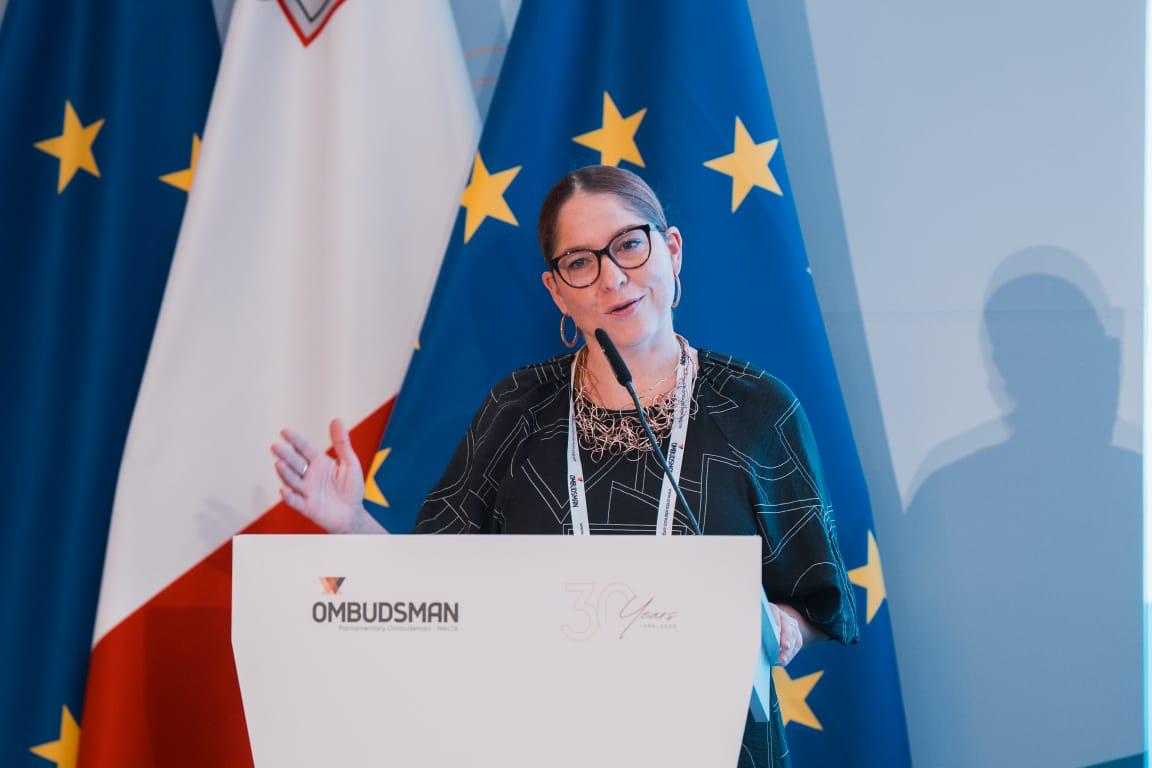To mark the 30th anniversary of the Maltese Ombudsman institution, the Association of Mediterranean Ombudsmen (AOM) held a meeting in Valletta on 15 and 16 October 2025, attended by Ombudswoman Tena Šimonović Einwalter.
During the event, the AOM General Assembly was held, along with several panel discussions dedicated to the role and activities of ombudsman institutions in the context of numerous contemporary challenges that many citizens face in exercising their rights.
In a panel focusing on social changes brought about by technological innovation and the role of ombudsman institutions in the age of digitalisation and the use of various forms of artificial intelligence (AI), Ombudswoman Šimonović Einwalter pointed out that AI represents both opportunities and challenges for many individuals in vulnerable situations – for instance, those facing discrimination based on age, race, national origin, political or religious belief, and similar grounds.
AI-driven technologies, she explained, could potentially improve citizens’ access to public institutions and services, create new opportunities for civic engagement and participation, and enhance data collection and analysis, thereby allowing for more effective identification and resolution of issues that citizens encounter.
However, the use of such systems also brings significant risks – for example, the exclusion of vulnerable groups from digital platforms, algorithmic bias and discrimination, and the inadequate representation of vulnerable communities in the processes of AI development, all of which could further deepen existing social inequalities.
The Ombudswoman also referred to the European Union’s Artificial Intelligence Act, the first legal framework addressing the risks of AI use, emphasising the importance of national human rights institutions (NHRIs) and equality bodies in the process of implementing and monitoring AI-based systems.
It is therefore essential, she said, that NHRIs and equality bodies monitor the implementation of AI systems — particularly high-risk systems in areas such as employment, public safety, policing and migration, as well as all others whose use could lead to violations of citizens’ human rights.
Since, in most cases, citizens are not even aware when their rights are violated by AI systems and therefore do not file complaints with ombudsman institutions, it is important for these institutions to act proactively. This includes advocating for transparency, ethical standards and binding legal regulations, raising public awareness about AI systems, educating young people through the school system and adults through public campaigns, training public and civil servants, and cooperating with market supervision and data protection authorities.
Speaking about the legal framework for AI use and the role of the Ombudswoman’s institution in the Croatian context, Šimonović Einwalter noted that work is currently under way on a draft Law on the Implementation of the Artificial Intelligence Act, and that the Ombudswoman’s institution is part of the working group preparing the draft. She stressed the importance of ensuring that the legislative process removes all potential barriers to the law’s effective implementation, and that it introduces additional safeguards specific to AI, aimed at protecting equality and human rights in the era of new technologies.
Alongside Ombudswoman Šimonović Einwalter, the discussion featured Estonian Ombudsman Ülle Madise, Barcelona Ombudsman David Bondia, Director and Secretary of the Venice Commission of the Council of Europe Simona Granata-Menghini, and Alexiei Dingli from the University of Malta.





